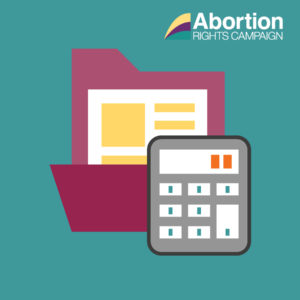
Following the resounding referendum result to remove the 8th Amendment, Budget 2019 is the first opportunity the State has ever had to provide meaningful resources for abortion care. This is our chance to provide high quality, community-based, patient-centred abortion services that reflect international best practice, meet the needs of all, and align with Ireland’s health care strategy for the future. ARC asks that funding be allocated without delay for free, safe and legal abortion services across Ireland.
Recommendations
ARC asks that Budget 2019 takes account of the following recommendations:
- Make abortion free to all who want it, regardless of income, age, employment status, nationality, residency status, or any other factor
- Ensure choice of provider and choice of procedure is protected without any additional costs
- Provide funding to recruit and train medical professionals to provide abortion, to prevent any geographic gaps in service provision
- Ring-fence abortion care funding
- Flexibility in the drugs budget for suitable medication
- Provide for free pre- and post- abortion care services for all who need them
- Roll-out comprehensive training for doctors, nurses, midwives, pharmacists and all other workers who will be involved in abortion care, including values clarification
- Launch initiatives to inform the public of services and destigmatise abortion
- Provide interim measures for those needing abortion care immediately through the Treatment Abroad Scheme
Accessible abortion
Fundamentally, abortion must be accessible to all who need it. If abortion services are only provided by private healthcare providers, or at a cost, then poor and low-income people could be prevented from accessing safe care. Cost barriers would also impact those without control of their own finances, such as adolescents and people experiencing domestic violence. We therefore welcome the Cabinet’s commitment to free abortion care for all.
We ask that the Government make clear in the Budget how it intends to provide universal access to free abortion care, both at primary care level and in hospital settings. People should not be constrained in their choice of provider or choice of procedure due to financial barriers. For example, people with medical cards must be able to access abortion care from any practice, not just the GP to which their card is registered. Similarly, where either a surgical or medical abortion is suitable for the patient, they should be able to choose either type of procedure without charge.
Accessible service also means local service. The strength and breadth of the “Yes” vote reflected the fact that abortion access is not a uniquely urban or rural issue. The State has a duty to ensure that people do not have to travel long distances to access abortion. This may require hiring additional staff for any areas of the country where there are gaps in provision.
Abortion funding should be ring-fenced to ensure there is sufficient capacity to provide this necessary service across the country.
Resources must also be allocated for free pre- and post- abortion supports, accessible locally to anyone who needs them.
Training and supports
Training for medical professionals who will provide abortion care must be rolled out immediately, so as not to delay the implementation of new legislation. Training in abortion provision should include giving medical professionals ample opportunity to voice their concerns, learn from international best practice and address their own values and perceptions. Values clarification is a constructive means of opening a dialogue and helping people to think about and become comfortable with the idea of providing reproductive health services for the first time. Integrating values clarification into the training and education of medical professionals would help ensure that services in Ireland are supportive and non-judgemental. Ongoing support for staff should be provided.
This education and support should be extended to all workers involved in abortion care, including nurses, midwives, pharmacists and others, who each have a role to play in ensuring abortion is truly accessible.
Reproductive health education and services
Public education initiatives should be extended to inform people about their rights and the services that are available as well as to tackle abortion stigma.
In addition to abortion care, ARC recommends ensuring adequate budgets for relationship and sexuality education, sexual healthcare services, free contraception, and antenatal care. These services should be available and of equal quality across the country.
Interim measures
We recognise that practical realities may delay the full implementation of abortion care in every part of the country. However, abortion is a time-sensitive medical procedure and delays have a negative impact on patients. In the interim we would urge the Government to use existing processes, such as the Treatment Abroad Scheme, to ensure people who need abortions get the best possible care without enduring a financial burden.

